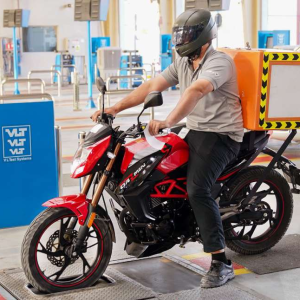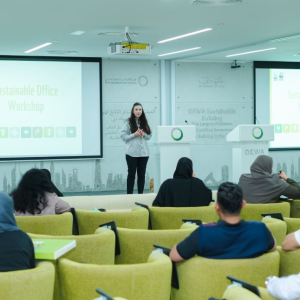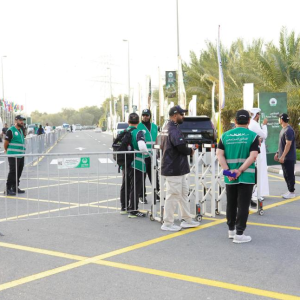The UAE Africa tourism partnership marks a historic step toward building stronger economic, cultural, and tourism ties between the United Arab Emirates and more than 20 African nations. This initiative is not just about travel and leisure—it’s about reshaping economies, developing sustainable industries, and empowering communities across the African continent.
The UAE, known for its vision-driven approach to development, is bringing its expertise in tourism, logistics, aviation, and digital transformation to help African nations unlock their untapped potential.
Why This Partnership Matters
Tourism is often seen as something fun—a beach holiday or cultural visit—but in this case, it is being positioned as a strategic driver of economic growth. By joining forces with African countries, the UAE and its partners aim to unlock new opportunities: new airports, better connectivity, modern infrastructure, digital transformation and high-quality tourism offerings.
This matters for several reasons:

- It helps diversify African economies, providing more than just raw-material or extractive industries.
- It gives the UAE a broader role beyond its own borders, tapping into emerging growth markets.
- It builds jobs, skills and infrastructure in destinations that are ready to grow.
- It strengthens global tourism networks, where Africa can play a more prominent role.
The Pillars of Collaboration
The joint statement between the UAE and the African nations sets out five key pillars: tourism, investment & infrastructure, aviation & connectivity, sustainability, and digital innovation. Each pillar plays a vital part in ensuring the partnership is meaningful and deep-rooted, not just headline-grabbing.
Tourism
At the heart of the new strategy is tourism. The aim is to develop quality tourist infrastructure—resorts, hotels, cultural destinations—and to make those places more accessible to the world. By enhancing tourist appeal, the participating African nations can attract visitors, increase revenues and build local tourism ecosystems.

Investment & Infrastructure
Investment is critical. With the announced mapping of projects amounting to around USD 6 billion, the scale is significant. Through this investment, infrastructure such as roads, airports, ports, and townships will see development. Infrastructure isn’t just physical—it’s human too: skills, training and organisational capacity matter.
Aviation & Connectivity
Tourism cannot flourish without connectivity. Aviation links, routes, logistics networks and seamless transport are essential. The plan emphasises expanding air links and improving logistics services so that tourist flows, business travel and transport become easier and more efficient.
Sustainability
Any modern partnership must account for environmental and social sustainability. The UAE-Africa framework emphasises climate resilience, eco-friendly solutions, protecting natural and cultural heritage, and ensuring tourism is inclusive—benefiting women, youth and local communities.
Digital Innovation
Finally, in a world leaning on technology, digital transformation is a vital element. From smart tourism management systems to online bookings, digital marketing, data analytics and infrastructure, this pillar ensures that the collaboration is future-proof and robust.
What Will Change on the Ground
What do these lofty plans look like in practice? Here are some tangible changes we can expect:
- New or upgraded airports and air-connectivity in African regions, making previously hard-to-reach places more accessible to tourists and business travellers.
- Modern resorts, cultural-heritage sites and eco-tourism destinations built with international standards, attracting more global visitors.
- Better logistics networks: improved roads, ports and transport hubs that help tourism but also other sectors like trade and agriculture.
- Job creation: the investment mapping points to tens of thousands of direct and indirect jobs stemming from the collaboration.
- Skills and capacity building: training local workers in tourism, hospitality, aviation, digital and infrastructure sectors.
- Stronger regulatory and institutional frameworks: predictable rules and investment-friendly environments to attract private capital.
- A boost to local economies: increased foreign investment, enhanced local supply chains and more diversified revenue streams.
Why This Is a Win-Win for Both Sides
For the African Nations
- They gain access to investment, expertise and global networks from the UAE.
- They can diversify their economies beyond relying solely on a few sectors.
- They can meaningfully develop tourism, which often has high potential in Africa (wildlife, culture, nature, beaches).
- They can create jobs for youth and women, and empower local communities.
For the UAE
- The UAE strengthens its global soft-power and economic footprint.
- It expands its role as a hub of tourism, transport and investment.
- It taps into growth markets with high potential.
- It positions itself as a leader in sustainable and innovative tourism.
Challenges and What to Watch For
As with any large-scale partnership, there are risks and challenges. Some to keep an eye on:
- Infrastructure and investment always carry risk: delays, cost-overruns and unexpected regulatory or political issues.
- Sustainability must be meaningful: true community benefit, environmental protection and long-term viability—not just quick wins.
- Ensuring that local populations truly benefit—not just externally driven projects.
- Connectivity and logistics can be complex in remote or regions with weak base infrastructure.
- Balancing tourism growth with preserving cultural and natural heritage.
- Ensuring clear governance, transparency and alignment of interests among multiple parties (governments, private sector, communities).

The Road Ahead: What to Expect Next
In the near term, we may see announcements of specific projects—airport upgrades, resort developments, transport-hub expansions, digital platforms for tourism booking and marketing.
In the medium to long term, we can expect a growing number of visitors to African destinations, increased private-sector involvement, stronger tourism-industry ecosystems in African countries, and deeper linkages between Africa and the UAE in trade, logistics and diversification.
Over time, the goal is that tourism is not simply a separate sector but becomes integrated: it drives investment, supports infrastructure, promotes digital adoption, and contributes to broader economic transformation.
Why This Matters for the World
Global tourism is shifting. Emerging destinations matter more. Africa’s vast natural and cultural resources are increasingly in focus. Partnerships like this one push the industry beyond a narrow few hubs into a broader, more inclusive global tourism network.
Moreover, in a world conscious of sustainability, responsible tourism that benefits communities and respects nature is becoming central. When the UAE and African nations commit seriously to these values, they help set a template for others. Finally, by strengthening economic ties across continents, we see a glimpse of a more interconnected, resilient global economy—where investment flows, people move, tourism grows, and shared prosperity becomes more achievable.
Conclusion
The UAE’s decision to collaborate with more than 20 African nations on tourism and key sectors marks a major milestone. It signals that tourism is no longer just a leisure activity—but a strategic tool for economic growth, job creation and global connection. For the African nations involved, it presents a chance to build modern infrastructure, diversify economies and share in global tourism growth. For the UAE, it expands its global reach and solidifies its role as a hub for innovation, tourism and investment.
If all goes well, what begins as investment and mapping will evolve into thriving tourism destinations, stronger local economies and meaningful partnerships across continents. The journey ahead may have challenges, but the promise is clear: together, the UAE and its African partners are poised to reshape how tourism, connectivity and investment combine—and in doing so, create positive change for millions.
Do follow UAE Stories on Instagram
Read Next – PRYPCO Launches New Super App to Empower Dubai Real Estate Agents












